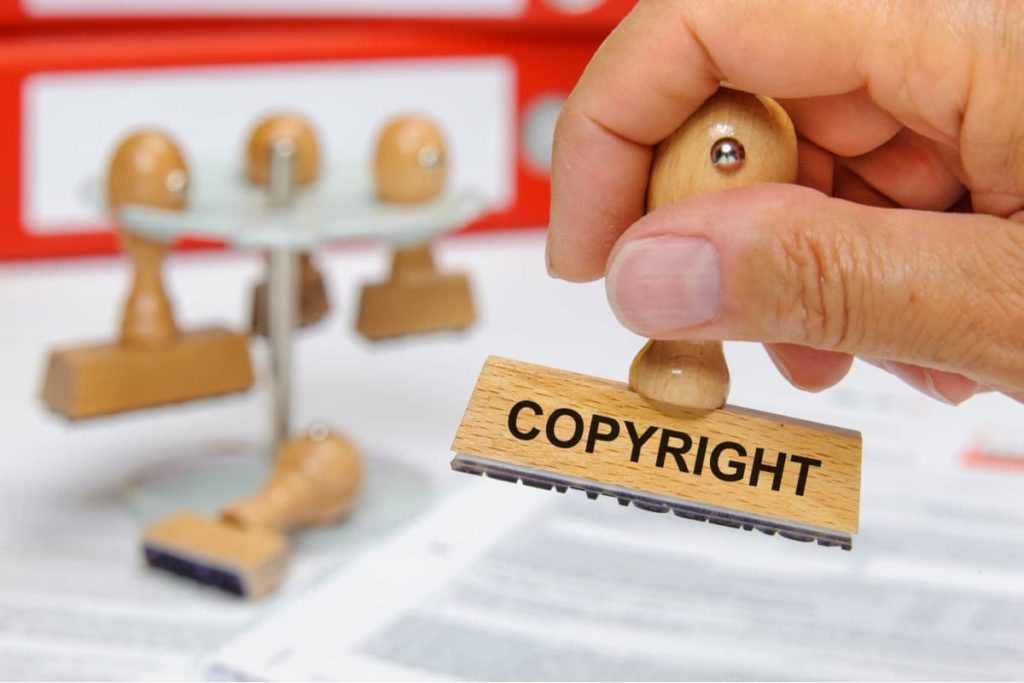The Zeigarnik Effect states that incomplete tasks are more memorable than complete ones, easily applied to cliffhangers or ellipses in stories. So today we want to find out, is it possible to copyright a story that isn’t finished?
When you write something you usually automatically gain copyright in that work, depending on where you live. To begin legal defence of your copyright in the USA you must register your work with the Copyright Office.
You can register an unfinished work, but it will only protect the sections finished at the time of submission. So if you register an unfinished work, you should reapply after finishing it unless you don’t intend on finishing it.
There are ways you can register an incomplete work, and we will be exploring the rules and exceptions below. Remember to consult a lawyer before acting on information in Letter Review!

Requirements for Copyrighting a Book
Although you may be unable to imagine a situation where work would purposefully remain unfinished, it does happen. Franz Kafka’s dying wish was to have his friend burn all of his writing, only for his friend to publish as much as he possibly could.
Numerous authors died before they could finish their work. Among them are Jane Austen, Vladimir Nabokov, and Ernest Hemingway. These works were published by friends and family members of the deceased writers.
The bottom line is that the only requirements your manuscript should legally fulfill before it can be copyrighted include:
- It must be an original work. As long as your manuscript is your authentic and original work, you can gain copyright in it. You can’t list facts, use someone else’s story, or directly copy elements from other published works.
- It must be documented in a tangible form. You can only copyright something tangible, so any book that fulfills the above requirement and is recorded digitally or on paper can be copyrighted.
This applies to all forms of media, not just books or any other type of written work. You should have no problem securing copyright on your work if you fulfill all of the requirements, which will take immediate effect.
Although it is possible to register an unfinished work, it doesn’t make sense to do so under ordinary circumstances. There’s a strong likelihood that your unfinished work will go through one or more stages of edits and changes and may be redone altogether.
This requires you to file for multiple registrations on different parts of the work.
Any infringement could become much more complicated than if there was one copyright for the entire book. It’s also improbable that anyone will try to steal your work in the stages before you start showing it to others, especially if you take the necessary precautions to protect your idea and story.
Do You Need To Copyright a Book To Publish It?
Copyright laws are a brilliant mechanism to ensure the security of your intellectual property and avoid people taking advantage of it or using it in ways you don’t approve of or aren’t aware of. You likely don’t need to apply for copyright (in the USA you usually automatically get copyright in any writing, for example), but that depends on the laws in your country.
You don’t need to copyright a book to publish it, and there’s no time limit on registering written work. If you’re concerned about registering an unfinished piece, there is plenty of time for you to wait and complete the work first or not copyright it at all.
Can You Publish an Incomplete Book?
Unless you are a literary genius on your deathbed with an unfinished book, there is no reason why you should publish an incomplete book.
You can publish an incomplete book if you self-publish, as all responsibility and consequences fall on you. Publishers will likely not publish any book that has a bigger risk than reward, and an incomplete book is a risk unlikely to pay off.
If you decided to do this, or if your publisher agreed to this, there likely wouldn’t be any gain, and your work wouldn’t be more successful than if you publish a complete book.
There is no reason why you should publish an unfinished book that you can finish, and your contract will typically stipulate how long you have to finish a book or complete certain sections.
If you make the most of your time, this should give you enough to complete your book. You can always get an extension or seek help from the publishing team if you are struggling.
If you self-publish, you have far fewer resources, including having nobody to help you market your book, until you hire someone to help you! Self-publishing an unfinished work may result in poor sales, a bad reputation, and a dissatisfied audience.
If your livelihood depends on the success of your writing, you should do everything you can to make it as enticing to an audience as possible, and an unfinished book likely isn’t enticing. If you struggle to complete a book because of writer’s block, you’re not alone.

How To Protect Your Unfinished Work
Even though it doesn’t always make sense for you to register an unfinished book, there are still ways to ensure your work is protected before publishing. Before your work is published, achieving watertight protection for your book is pretty challenging.
Still, there are smaller ways for you to protect it:
- Contracts and retainers: Traditional publishers try to help you protect your work through contracts, retainers, and advances.
- “All Rights Reserved”: You can also watermark or put a copyright mark on each page of your manuscript, such as the © copyright symbol or “All Rights Reserved.”
However, most of it comes down to trust, especially if you show your work-in-progress to people you aren’t working with, such as friends or other writers.
A retainer is when a publisher pays a writer in advance for reaching specific writing goals, which are set to be completed within a particular time frame. For example, a publisher could pay an author in anticipation of them completing 25% of their book.
It also ensures that the publisher trusts you to write the book and will not steal your work. This also creates a clear timeline of submissions and progress in your work that prove it’s your idea if anyone else tries to copy it.
That being said, there is a limit to how much you can restrict access to your ideas. No idea is likely to be entirely original, so somebody might write a book with an almost identical premise without ever hearing about your work.
Unfortunately, there’s nothing you can do in this situation except try and write a better book. If someone directly steals your idea, passages from your book, or characters, you can’t do anything about it if the work isn’t copyrighted in the country you want to take action in.
The best way around people stealing your work is to publish with a publisher you trust and to show your manuscript to people you know won’t steal your idea. Keep the meaty stuff under wraps until you have your registration in order once you’ve completed the work.
Conclusion
Every author wants to get credit for their work and avoid it getting stolen, but registering an unfinished book probably doesn’t make sense, as not many people will see it in the early stages. Remember you likely automatically gain copyright in your writing, depending on where you live. There are simpler ways than registering your work to protect it before publication, and one is to make sure you trust the people you work with.

